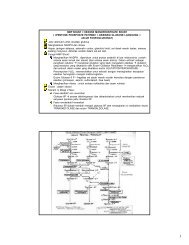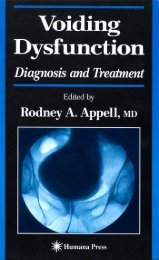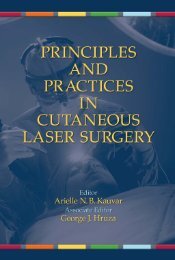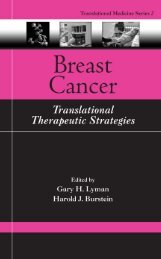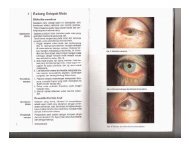International Handbook of Clinical Hypnosis - E-Lib FK UWKS
International Handbook of Clinical Hypnosis - E-Lib FK UWKS
International Handbook of Clinical Hypnosis - E-Lib FK UWKS
You also want an ePaper? Increase the reach of your titles
YUMPU automatically turns print PDFs into web optimized ePapers that Google loves.
HYPNOSIS AND RECOVERED MEMORY 101<br />
1996) argued, however, neither the clinician nor the client has de®nite knowledge<br />
<strong>of</strong> the reasons for a particular problem. Of course, the clinician can have more or<br />
less plausible theories regarding that problem, but these theories should not be<br />
confused with absolute truth, however compelling they may seem. In other words,<br />
clinicians need to deal with recovered memories in terms <strong>of</strong> their clinical utility,<br />
without focusing on the truth or falsity <strong>of</strong> those memories Fowler, 1994).<br />
HYPNOSIS AND MEMORY<br />
The use <strong>of</strong> hypnosis to enhance memory can lead to major changes in recall, as<br />
well as in the con®dence that people hold in the accuracy <strong>of</strong> their recall. The<br />
in¯uence <strong>of</strong> hypnosis on memory generally has been the focus <strong>of</strong> substantial<br />
investigation and comment American Medical Association, 1985, 1994; American<br />
Society <strong>of</strong> <strong>Clinical</strong> <strong>Hypnosis</strong>, 1995; Laurence & Perry, 1988; McConkey &<br />
Sheehan, 1995; Pettinati, 1988, Sche¯in & Shapiro, 1989), and the in¯uence <strong>of</strong><br />
hypnosis on recovered memory has been the focus <strong>of</strong> two special issues <strong>of</strong> the<br />
<strong>International</strong> Journal <strong>of</strong> <strong>Clinical</strong> and Experimental <strong>Hypnosis</strong> October 1994; April<br />
1995). Overall, it is clear that people can believe strongly in the accuracy <strong>of</strong> their<br />
hypnotically enhanced memories, even when those memories are wrong. In<br />
summary <strong>of</strong> the experimental ®ndings about the effect <strong>of</strong> hypnosis on memory,<br />
McConkey 1992) concluded, `It should be understood clearly that the experimental<br />
®ndings provide no guarantee that any bene®ts e.g., increased accurate recall) will<br />
be obtained through its use, and that some costs e.g., inaccurate recall, inappropriate<br />
con®dence) may well be incurred through its use' p. 426). For instance,<br />
hypnosis can lead to an apparent increase in memory, because it may lead people to<br />
generate and report more material as memory than they would if hypnosis were not<br />
involved McConkey & Kinoshita, 1988). Also, hypnotized individuals can accept<br />
subtle changes to their memory, incorporate those changes into their memory, and<br />
develop con®dence in the accuracy <strong>of</strong> what they report; one <strong>of</strong> the most consistent<br />
®ndings from the experimental research is that hypnosis may lead people to be<br />
inappropriately con®dent in the accuracy <strong>of</strong> their memory Nogrady, McConkey &<br />
Perry, 1985; see also Krass, Kinoshita & McConkey, 1988). Finally, hypnosis can<br />
lead to the creation <strong>of</strong> pseudomemory when a hypnotized person accepts a<br />
suggestion for false information and subsequently reports that information as a<br />
genuine memory Barnier & McConkey, 1992).<br />
Although some have debated the interpretation and relevance <strong>of</strong> experimental<br />
research on hypnosis and memory American Society <strong>of</strong> <strong>Clinical</strong> <strong>Hypnosis</strong>, 1995),<br />
in their analysis <strong>of</strong> recovered memories <strong>of</strong> abuse Pope & Brown 1996) considered<br />
that `because hypnotic technique can enhance suggestibility and lead to the<br />
development <strong>of</strong> pseudomemories in some individuals, its use as a memory<br />
enhancement or memory-retrieval strategy seems questionable at best' p. 59). The<br />
importance <strong>of</strong> understanding the processes involved, as well as the possible risks




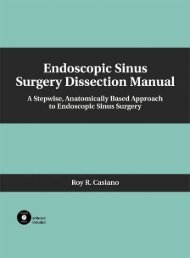
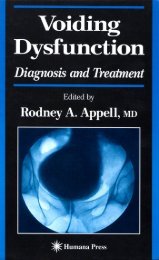

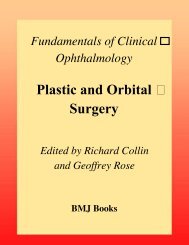
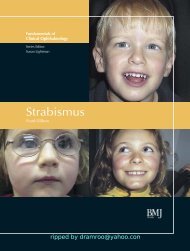


![SISTEM SENSORY [Compatibility Mode].pdf](https://img.yumpu.com/20667975/1/190x245/sistem-sensory-compatibility-modepdf.jpg?quality=85)
